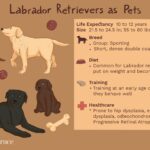Table of Contents
Beagles are known for their friendly nature, intelligence, and boundless energy. Providing the right care for your Beagle is essential to ensure they lead a healthy and happy life. This detailed guide to Beagle care covers everything from nutrition and grooming to training and health tips. Here’s how to take the best care of your Beagle.

Understanding Beagle Characteristics: Detailed Guide to Beagle Care
Beagles are small to medium-sized dogs with a keen sense of smell and an adventurous spirit. They are known for their loyalty, sociability, and strong hunting instincts. Understanding these characteristics is key to providing proper care.
- Temperament: Friendly, curious, and merry.
- Size: 13-15 inches tall at the shoulder, weighing between 20-30 pounds.
- Life Expectancy: 12-15 years.
Proper Nutrition for Beagles: Detailed Guide to Beagle Care
Providing a balanced diet is crucial for your Beagle’s health. High-quality commercial dog food or a well-planned homemade diet can meet their nutritional needs.
- Protein: Essential for muscle development. Look for foods with high-quality animal protein.
- Fats: Provide energy and support skin and coat health. Choose foods with healthy fats like fish oil.
- Carbohydrates: Offer energy and fiber. Opt for whole grains and vegetables.
Tip: Avoid overfeeding your Beagle to prevent obesity. Consult your veterinarian for specific dietary recommendations. For more on Beagle nutrition, visit the AKC’s nutrition guide.
Regular Exercise and Play: Detailed Guide to Beagle Care
Beagles are energetic dogs that require regular exercise to stay healthy and happy. Daily walks, playtime, and mental stimulation are essential.
- Walks: Aim for at least one hour of walking per day.
- Playtime: Engage in interactive play with toys and games like fetch.
- Mental Stimulation: Provide puzzle toys and training exercises to keep their minds active.
For more exercise tips, check out the Humane Society’s guide on exercising your dog.
Grooming Your Beagle: Detailed Guide to Beagle Care
Regular grooming helps keep your Beagle’s coat healthy and reduces shedding. Beagles have a short coat that is relatively easy to maintain.
- Brushing: Brush your Beagle’s coat at least once a week to remove loose hair and dirt.
- Bathing: Bathe your Beagle every 4-6 weeks or as needed using a gentle dog shampoo.
- Ear Cleaning: Beagles are prone to ear infections. Clean their ears weekly with a vet-recommended ear cleaner.
- Nail Trimming: Trim your Beagle’s nails every 3-4 weeks to prevent overgrowth.
For grooming tips, visit the AKC grooming guide.
Training and Socialization: Detailed Guide to Beagle Care
Beagles are intelligent and eager to learn but can also be stubborn. Consistent training and early socialization are key to a well-behaved Beagle.
- Basic Commands: Teach basic commands like sit, stay, and come using positive reinforcement.
- Socialization: Expose your Beagle to different environments, people, and other dogs to build confidence.
- Crate Training: Crate training can help with housebreaking and provide a safe space for your Beagle.
For more training tips, visit the ASPCA’s training tips.
Health and Veterinary Care: Detailed Guide to Beagle Care
Regular veterinary check-ups are essential to monitor your Beagle’s health and catch any issues early. Be aware of common health problems in Beagles.
- Vaccinations: Keep up with your Beagle’s vaccination schedule to protect against common diseases.
- Parasite Prevention: Use preventive treatments for fleas, ticks, and worms.
- Common Health Issues: Beagles are prone to conditions like hip dysplasia, epilepsy, and hypothyroidism. Regular vet visits can help detect and manage these issues.
Tip: Schedule annual dental cleanings to maintain your Beagle’s oral health. For more health care tips, visit the AVMA’s dog care guide.
Dental Care for Beagles: Detailed Guide to Beagle Care
Oral hygiene is crucial for your Beagle’s overall health. Poor dental care can lead to gum disease and other health issues.
- Brushing Teeth: Brush your Beagle’s teeth at least 2-3 times a week using a dog-friendly toothpaste.
- Dental Chews: Provide dental chews to help reduce plaque and tartar buildup.
- Regular Check-Ups: Have your vet check your Beagle’s teeth during routine visits.
Spaying/Neutering: Detailed Guide to Beagle Care
Spaying or neutering your Beagle can have health and behavioral benefits. Discuss the best time for this procedure with your veterinarian.
- Health Benefits: Can reduce the risk of certain cancers and prevent unwanted litters.
- Behavioral Benefits: May help reduce behaviors like marking and aggression.
Providing a Safe Environment: Detailed Guide to Beagle Care
Ensure your home and yard are safe for your Beagle. Beagles are curious and may try to escape or get into things they shouldn’t.
- Fencing: Ensure your yard is securely fenced to prevent escapes.
- Hazard-Free Home: Keep harmful substances out of reach and secure trash cans.
- Safe Toys: Provide toys that are safe and appropriate for your Beagle to play with.
Love and Attention: Detailed Guide to Beagle Care
Beagles thrive on companionship and attention. Spend quality time with your Beagle to strengthen your bond and ensure their emotional well-being.
- Quality Time: Engage in activities your Beagle enjoys, like playtime, walks, and cuddles.
- Affection: Show your Beagle love and affection to keep them happy and emotionally healthy.
Conclusion: Detailed Guide to Beagle Care
Caring for a Beagle requires attention to their physical, mental, and emotional needs. By following this detailed guide to Beagle care, you can ensure your Beagle leads a happy, healthy, and fulfilling life. Remember to provide proper nutrition, regular exercise, consistent training, and plenty of love and attention.
Frequently Asked Questions about Beagle Care
How often should I groom my Beagle?
Brush your Beagle’s coat at least once a week and bathe them every 4-6 weeks or as needed. Clean their ears weekly and trim their nails every 3-4 weeks.
What is the best diet for a Beagle?
A balanced diet with high-quality animal protein, healthy fats, and whole grains or vegetables is ideal. Consult your vet for specific dietary recommendations.
How much exercise does a Beagle need?
Beagles need at least one hour of exercise daily, including walks and playtime. Providing mental stimulation through training and puzzle toys is also important.
What common health issues should I watch for in my Beagle?
Beagles are prone to hip dysplasia, epilepsy, and hypothyroidism. Regular vet check-ups can help detect and manage these conditions early.
How can I train my Beagle effectively?
Use positive reinforcement techniques, such as treats and praise, and be consistent with commands. Early socialization and basic obedience training are key.











